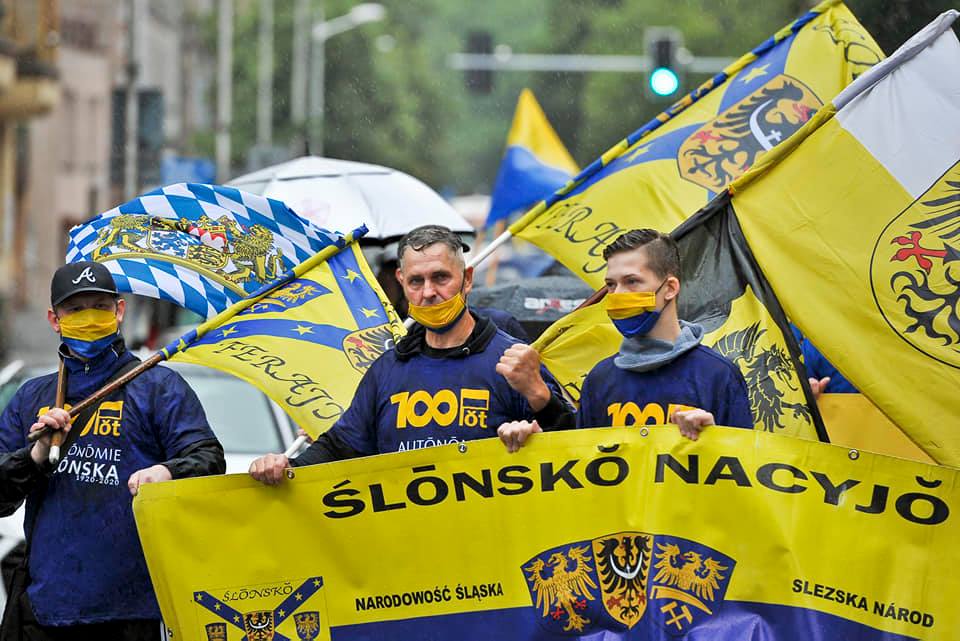Politicians and activists have launched a campaign to encourage people to declare themselves as having a Silesian identity and being speakers of Silesian in this year’s national census.
The campaigners believe that a large number of declarations could bolster the case for the Silesian ethnolect – which, after standard Polish, has the second-highest number of speakers in Poland – to receive official recognition as a language.
The push is being spearheaded by four politicians: Marek Plura and Monika Rosa, a senator and MP respectively, both from the Civic Coalition (KO), as well as Maciej Kopiec, an MP from The Left (Lewica) and Łukasz Kohut, a Member of the European Parliament representing the left-wing Spring (Wiosna).
Jesteśmy stroną porozumienia organizacji i środowisk śląskich, zawartego w związku ze zbliżającym się spisem powszechnym. Jego celem jest promowanie deklarowania narodowości śląskiej. Zbieramy także środki na kampanię informacyjną tu 👉🏻 https://t.co/4o5KeGqCVT pic.twitter.com/5vnw5DwlGP
— RuchAutonomiiŚląska (@AutonomiaSlaska) January 11, 2021
The parliamentarians have signed an agreement along with a number of regional organisations pledging to “cooperate to promote declaring a Silesian identity and the Silesian language” in this year’s census, which will run between the beginning of April and the end of June.
The initiative also aims at reaching people who may want to take part in the census, but are unable to do so because they are elderly, disabled, or do not have access to a computer.
In the previous census of 2011, 847,000 people declared Silesian nationality. Despite publicity for the issue of regional identity since then, experts say that the figure is far from certain to be higher this time around.
Tomasz Słupik, a political scientist at the University of Silesia, says that the electoral defeats of Silesian groups in the 2018 local elections could have bruised local sentiments. “To some extent, this could translate into a decline in confidence in regional politicians and Silesian affairs,” he told Gazeta Wyborcza.
A high number of people declaring the Silesian ethnolect as their mother tongue could help to advance long-standing efforts for it to be officially accepted as a regional language in Poland.
“In this way, we can show, among others, that many Silesians speak their own tongue and that it should be formally recognised as a regional language,” Rosa told Gazeta Wyborcza.
According to the 2011 census, Silesian is by far the second most widely used language/dialect in Poland, with more than half a million native speakers. Yet despite pressure from activists, the ethnolect has not received regional language status. In contrast, Kashubian, spoken in parts of northern Poland, was officially recognised as a language in 2015
In December, Kohut left European Parliament interpreters literally speechless when he switched to Silesian while discussing an EU initiative on minority rights in the EU.
This is great! MEP @LukaszKohut speaks in the Silesian language in the European Parliament and the simultaneous translator gets completely confused 😃 pic.twitter.com/OemJLfskqd
— Christopher Lash (@ChrisLashHist) December 15, 2020
“Don’t be afraid, Poland, of the Silesian nation and tongue,” Kohut later wrote on Twitter, mixing Silesian and Polish. “No rotten compromises on this issue – Silesian is a language, I tested that empirically in the European Parliament – the vice-president also confirmed it.”
Polish law guarantees national and ethnic minorities the right to use their own recognised languages and permits bilingual place names for areas with minority languages. There are 21 officially bilingual communes where auxiliary official languages – German, Kashubian, Lithuanian and Belarusian – are used.
In December, a popular game show faced complaints after including Kashubian in a list of answers to a question on dialects spoken in Poland.
Main image credit: Ruch Autonomii Śląska/Facebook

Maria Wilczek is deputy editor of Notes from Poland. She is a regular writer for The Times, The Economist and Al Jazeera English, and has also featured in Foreign Policy, Politico Europe, The Spectator and Gazeta Wyborcza.




















